How many days does pepper sprout and what to do in case of poor germination?
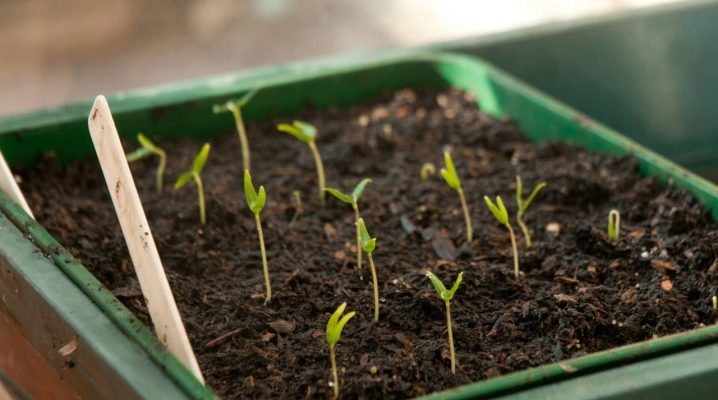
The reasons for poor germination of pepper seeds can vary, but most often the problem lies in improper planting conditions and improper crop care. Fortunately, it is quite possible to speed up the processes taking place inside the planting material by carrying out a few simple steps.
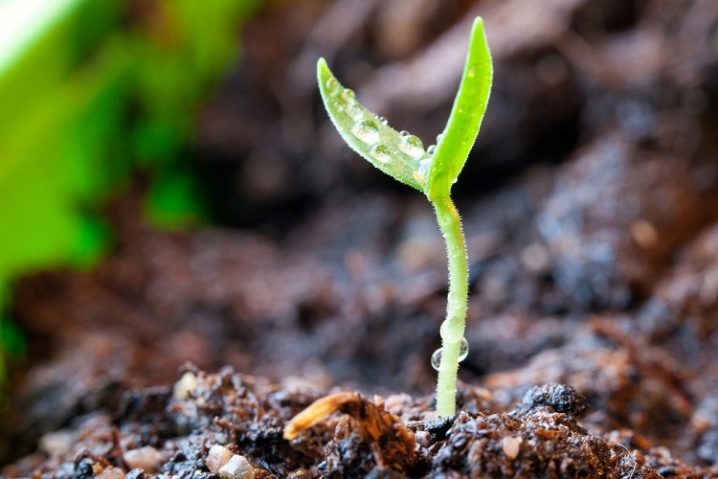
Influencing factors
How quickly the pepper rises can be influenced by various factors.
Lighting
Lighting plays an important role in the process of growing peppers. The light heats up and initiates insolation of the sprouts, as a result of which they begin to reach for its source. However, an excess of sunlight can negatively affect the plant: if they fall on the roots and provoke their lightening, the seedling will begin to stretch instead of full development.
In order for the culture to have enough light, containers with it must be placed in a well-lit place, for example, on a windowsill, but opaque containers should be preferred.
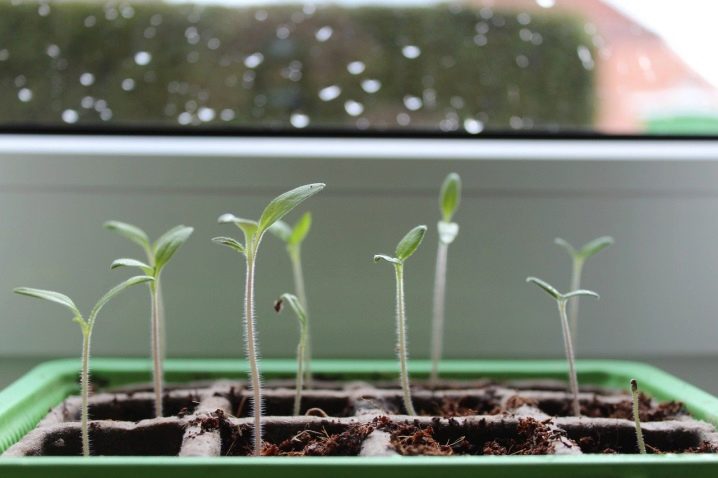
The soil
The pepper will hatch on time if a light, moderately loose soil mixture is found to be its habitat, providing oxygen access to the root system. Plant development on heavy or clayey soil will be slow or ineffective. The high density of the substrate simply does not allow the sprout to hatch. If land taken from the garden is used for planting seeds, it must be supplemented with sand and vermiculite.
The presence of a large amount of peat in the composition is not mandatory, since it has acidifying properties, and the pepper does not like acidified soil.
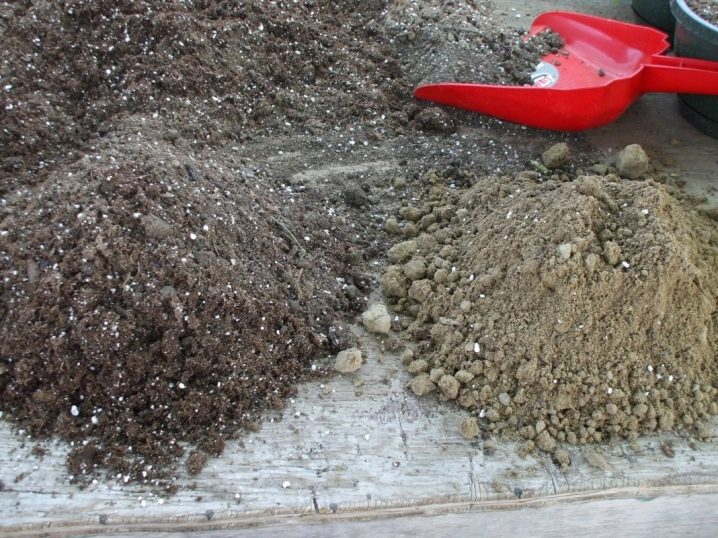
Boarding time
In order to send pepper seedlings to a greenhouse or greenhouse in a timely manner, sowing seeds should be carried out from mid-February to early May. This will make it possible to transplant the bushes when they reach the age of 60–80 days, when the air warms up enough, and there will be no fear of recurrent frosts.
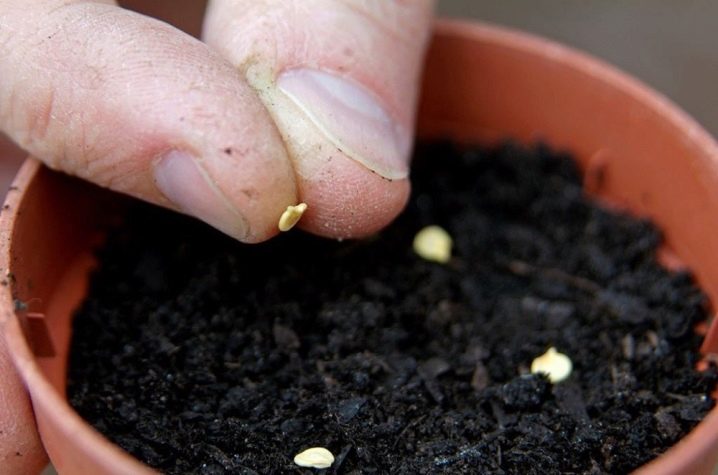
Seed quality
The longer pepper seeds are stored, the later they will germinate. In principle, the germination ability lasts up to 3 years, but every year the material becomes less quality. In other words, old seeds are not suitable for growing. Deterioration of the characteristics of seeds also occurs due to improper storage and transportation conditions. Unripe or overdried specimens do not sprout at all. High-quality seeds will quickly turn out to be spoiled if they are in a room with high humidity. This is due to the fact that moisture raises the internal temperature of the planting material, and overheating, in turn, deprives it of its ability to germinate.
It is best to use seed from your own garden, obtained after harvesting. The seeds are carefully removed from the fruit, dried and transferred to a darkened place. The containers in which the seeds will be located need to be regularly ventilated, therefore it is recommended to use a bag or container with holes.
If the planting material is purchased in a store, then you will have to make sure of its expiration date and the intactness of the packaging.
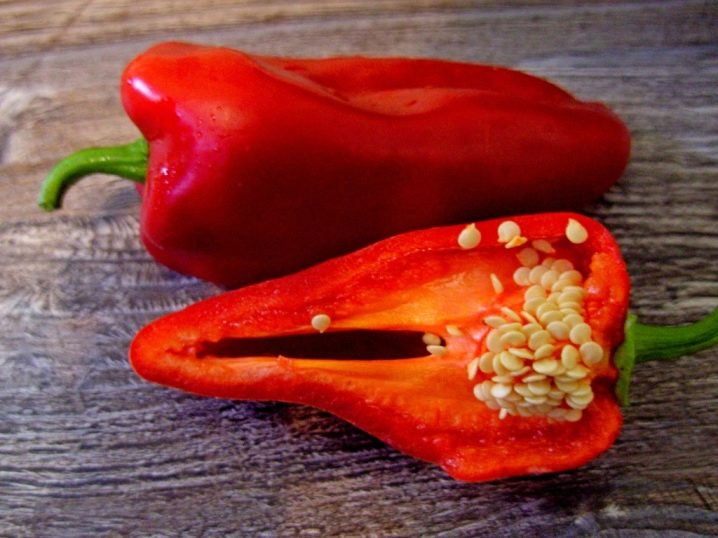
Treatment before sowing
Dry planting material emerges much slower than previously soaked for 6-7 hours. For the procedure, it is recommended to make a manganese solution, which provides an antiseptic function, as well as strengthens the culture's immunity. After soaking, the seeds are left in a damp cloth for a couple of days to hatch. Those that during this time do not move to the next stage can be thrown away. Before planting seeds, the soil is well irrigated with a sprinkler. The material deepens by 0.5–1 centimeter or is left on a moistened surface and covered with a layer of loose soil. Upon completion, the container is tightened with cling film.
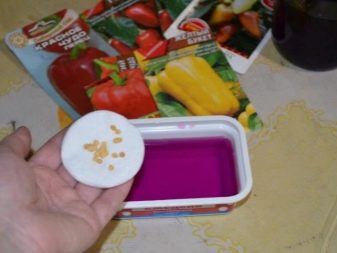
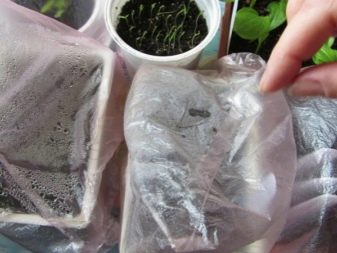
Climate
The seeds of a vegetable crop will germinate as quickly as possible at a temperature in the range of +25 - +27 degrees, for about 10 days. If it rises above +30 degrees, then the internal processes will slow down, and the material may even be cooked. The minimum temperature for "activation" of pepper seeds is +15 degrees, but under it they will develop for a very long time - about a couple of weeks. It is also quite possible that the seedlings will never appear on the surface. When growing vegetables at home, you will have to take into account the temperature of the soil. While the material is germinating, it should not fall below +18 - +20 degrees.
It should be mentioned that it is better to put a layer of polystyrene under the containers standing on the windowsill.
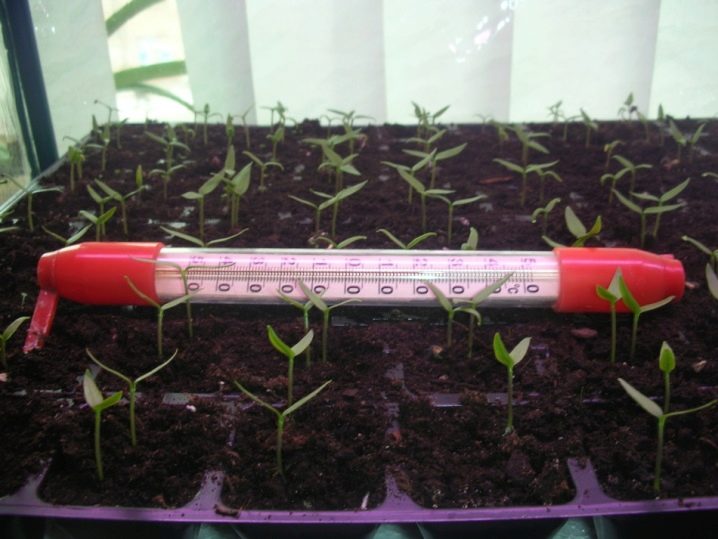
Soil moisture
Keeping track of soil moisture levels is beneficial for seed health. It is important that before the sprouts appear, the surface of the container is hidden under cling film, however, condensation should not appear in the pots. To do this, the landings will need to be ventilated daily. Immediately after pecking the first seeds, the coating is temporarily removed, first for a few minutes, and then more and more, up to half an hour. The earth itself will need to be maintained in a state of moderate humidity. If the soil dries up, then the seeds will not swell and hatch, and the seedlings that have already appeared will dry out. Too moist soil contributes to the decay of planting material.
To maintain an optimal condition, it will be necessary to organize drainage holes at the bottom of the container, as well as to loosen the topsoil in a timely manner.
It is better to water the seedlings by directing the stream along the edge of the pots.
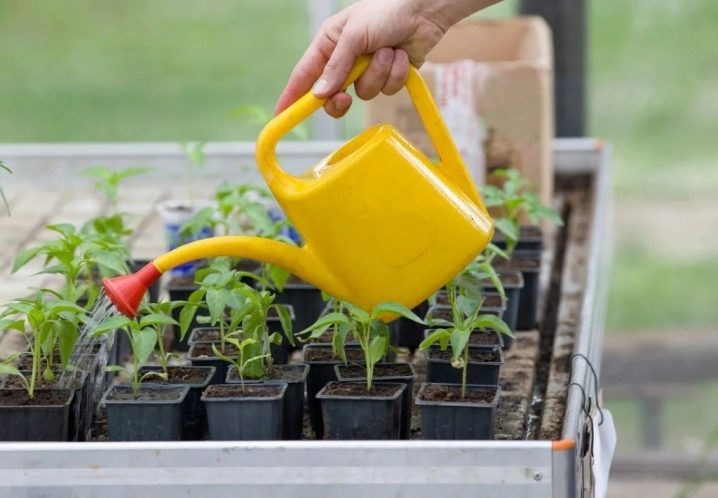
Fertilizers
Proper care is directly related to the condition of the seeds. However, fertilizers play some role in this case only if the sowing is carried out directly to the permanent habitat, bypassing the seedling stage. In this case, the soil will need to be fertilized with a potassium-phosphorus mixture.
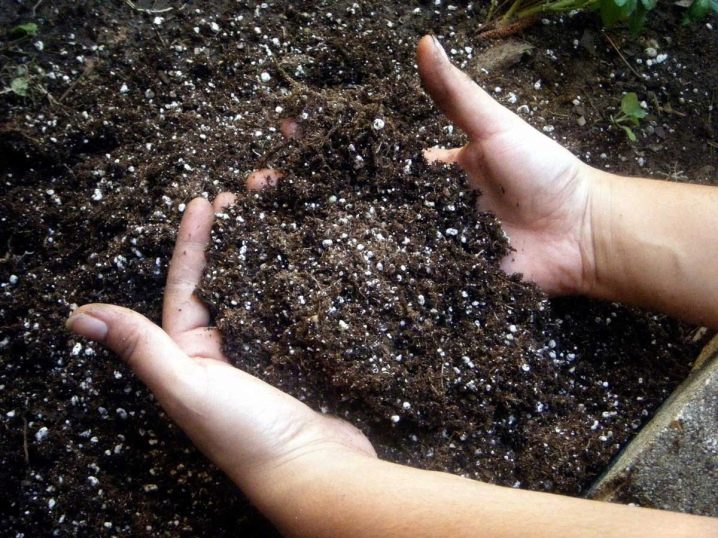
For example, each square meter can be fed with humus, 1 glass of double superphosphate and 1 glass of wood ash, as well as 25 grams of nitrate.
Crop rotation
When planting pepper seeds immediately in the garden, it is better to choose the places left after pumpkins, cucumbers and carrots, as well as onions with garlic and zucchini. All nightshades, eggplants and physalis are considered bad predecessors for culture.
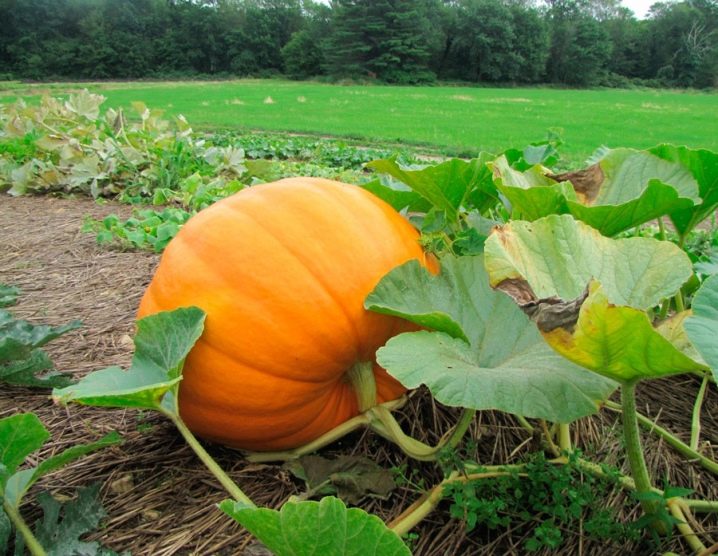
Timing
On average, sweet bell peppers sprout quickly - from 6 to 14 days, but the exact period is determined depending on weather conditions, seed quality, variety characteristics and other factors. If the planting processing is carried out correctly, then by the 15th day all the planted material should hatch. With a dry method of sowing, the first shoots appear on the 8-10th day, and preliminary soaking and germination shorten this period to 5-6 days.
Young vegetable shoots look like stalks twisted into a loop and devoid of leaf blades. The cotyledons themselves are formed later.
It happens that a shell remains on the hatching plant, which previously surrounded the seed, which inexperienced gardeners try to remove on their own. You should not touch it, because gross interference can lead to the destruction of the seedling.
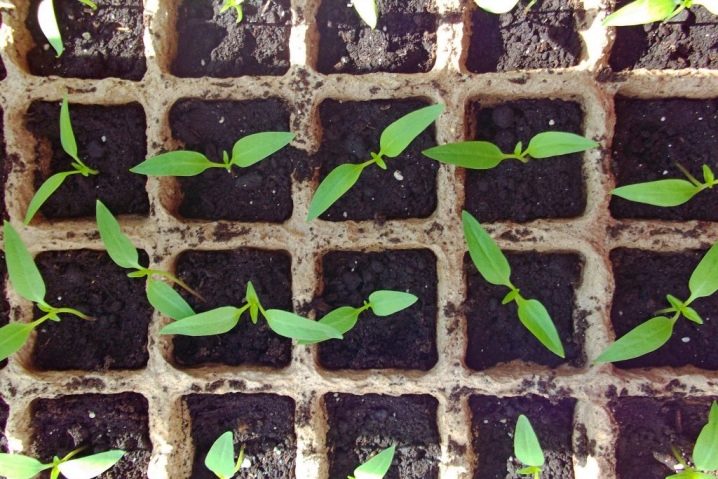
How to accelerate germination?
To improve the germination of seeds for seedlings, it is worthwhile to first do a number of additional procedures. For example, it will be useful to check the seed material. Grains purchased from a trusted manufacturer and covered with growth stimulants should not be touched, but those collected with their own hands in the garden or purchased on the market require this stage. The easiest way is to mix 30 grams of salt and 1 liter of water, and then lower the material there for 5 minutes. Those grains that will germinate well will sink to the bottom, and those that are bad will immediately float up.
Ordinary clean water heated to +30 - +40 degrees is also suitable for this test. In this case, the seeds are soaked for 20 minutes, in the future they also get rid of those that have emerged. Stimulation will achieve a good result. To carry it out, the grain will need to be dipped into water heated to +50 degrees, and left in it for about a third of an hour. After the above period, the material is wrapped in a moistened napkin and transferred to the freezer for a couple of hours.
The seeds treated in this way are immediately planted in the ground.
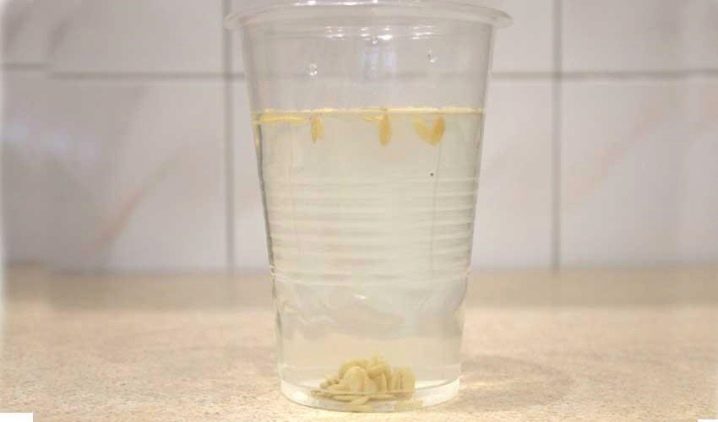
Growth stimulants can also achieve the desired result. Some gardeners prefer purchased drugs: "Zircon", "Epin", "Energenu". Others use folk recipes. So, the latter include aloe juice, which is diluted with pure water in a 1 to 1 ratio and used for two or three hours of soaking the material. If possible, it is worth collecting the snow and melting it naturally. After soaking cotton pads in the liquid, it remains to place the grains between them and leave until the roots hatch.
It is important to monitor the condition of the pepper and respond in a timely manner to its changes. For example, if seedlings do not appear well, it makes sense to move the container to a more heated and well-lit place. It should not be placed directly on the battery, since too high temperatures are detrimental to the grains. If the weather is cloudy, then the seedlings will have to organize additional lighting by installing special lamps. By the way, it would be a good solution to immediately plant the peppers in separate cups or peat pots. The fact is that the plant weakens due to damage to the roots, and it is almost impossible to avoid this during transshipment, so it is better not to disturb the seedlings once again. In the future, the specimens should be transferred to their permanent habitat using the transshipment method.
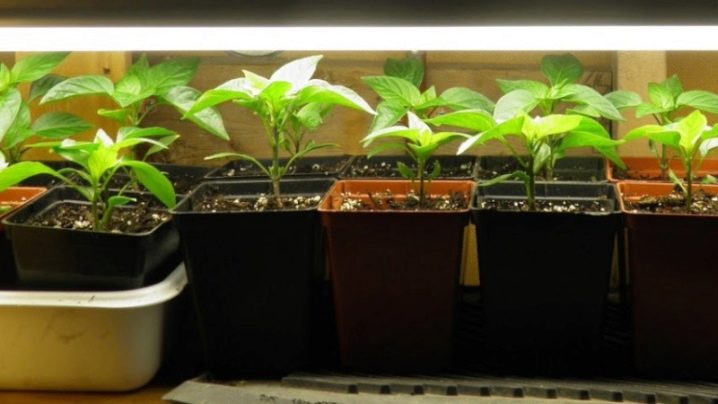













The comment was sent successfully.